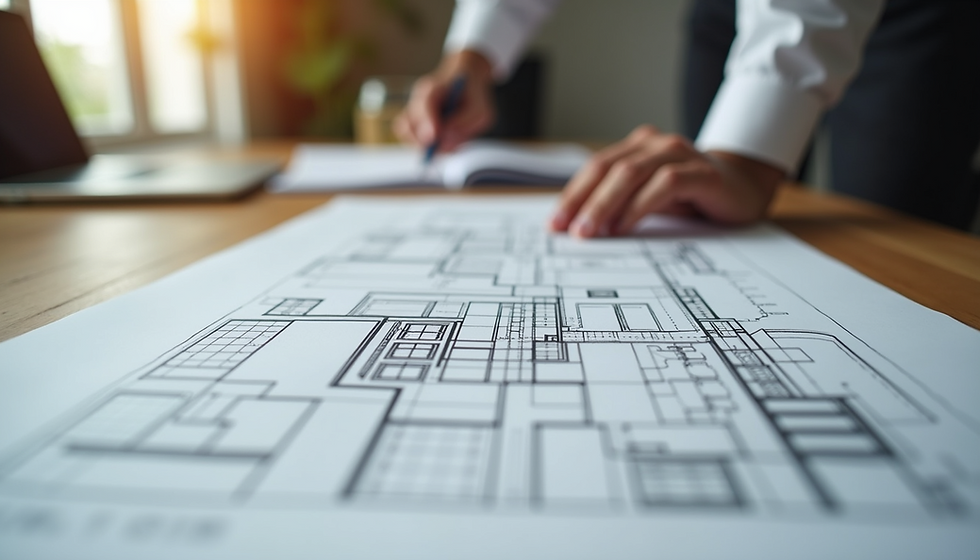Understanding the Costs Associated with Building a House
- arqui325
- Mar 27, 2024
- 2 min read
Building a house is a significant milestone and investment for many individuals and families. While the idea of constructing your dream home from scratch is exciting, it's essential to understand the various costs involved in the process. From materials and labor to permits and unexpected expenses, here's a comprehensive overview of the costs associated with building a house:
1. Land Acquisition: Before construction can begin, you'll need to purchase land to build your house on. The cost of land varies greatly depending on location, size, and local real estate trends. Researching available properties and considering factors like proximity to amenities and zoning regulations is crucial in finding the right piece of land within your budget.
2. Design and Architectural Fees: Designing your dream home often involves hiring an architect or residential designer to create detailed plans and blueprints. Architectural fees can vary based on the complexity of the design, square footage, and the level of customization desired.
3. Permit and Inspection Fees: Obtaining necessary permits from local authorities and scheduling inspections throughout the construction process is essential for compliance with building codes and regulations. Permit and inspection fees vary depending on the location and scope of the project.
4. Construction Materials: The cost of construction materials, including lumber, concrete, roofing, windows, doors, and siding, can significantly impact your overall budget. Prices may fluctuate due to factors such as market demand, availability, and quality of materials chosen.
5. Labor Costs: Hiring skilled laborers, contractors, and subcontractors to carry out the construction work is a significant expense in building a house. Labor costs vary depending on the scope of the project, prevailing wage rates in the area, and the skill level required for specific tasks.
6. Utilities and Site Preparation: Site preparation involves clearing land, grading, excavation, and installing utility connections such as water, sewer, electricity, and gas. These initial site preparation costs are essential for establishing a solid foundation for your home and ensuring access to essential services.
7. Interior Finishes and Fixtures: Once the structural work is complete, interior finishes and fixtures such as flooring, cabinetry, countertops, lighting, plumbing fixtures, and appliances are installed. The cost of these finishes can vary widely depending on the quality and style chosen.
8. Landscaping and Exterior Features: Landscaping, outdoor amenities, and exterior features such as driveways, walkways, decks, patios, and fences add to the overall curb appeal and functionality of your home. Budgeting for landscaping and exterior improvements is essential to complete the look and feel of your property.
9. Contingency Fund: It's essential to set aside a contingency fund of around 10-15% of your total budget to cover unexpected expenses or changes during the construction process. Unforeseen issues such as site conditions, weather delays, or design modifications can impact your budget and timeline.
10. Financing Costs: If you're financing the construction of your home with a construction loan or mortgage, be sure to factor in additional costs such as loan origination fees, closing costs, and interest payments during the construction phase.
Understanding the various costs associated with building a house is essential for budgeting effectively and avoiding financial surprises along the way. By carefully planning and allocating resources, you can embark on your home-building journey with confidence and turn your dream home into a reality.




Comments